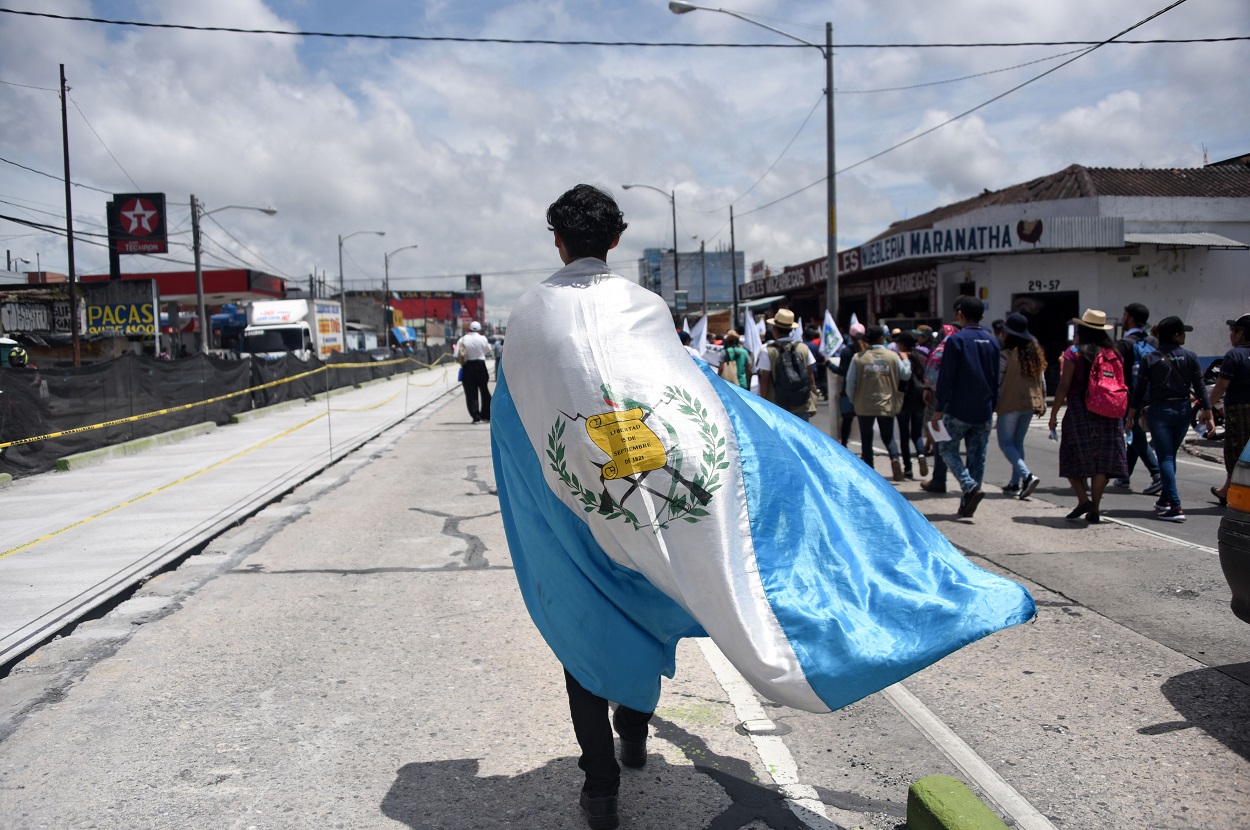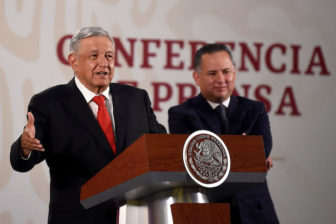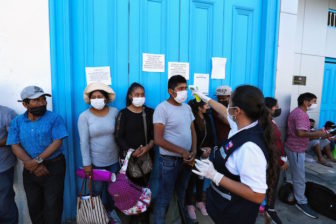Click here to read more of the decade’s 10 biggest stories.
WHO WAS INVOLVED: Iván Velásquez, Colombian prosecutor and commissioner (2013-2019) for the UN-backed International Commission against Impunity in Guatemala, or CICIG; Jimmy Morales, Guatemala’s president (2016-20); Thelma Aldana, Guatemala’s attorney general (2014-2018) and a close collaborator with CICIG
WHAT HAPPENED: It was a success story nearly a decade in the making: A handful of technocrats took on powerful criminal networks entrenched in Guatemala’s government, and, for some time, were winning.
Then, quickly, it all came crashing down.
CICIG’s partnership with Guatemala’s attorney general’s office and other institutions earned international acclaim for its prosecution of once untouchable high-level figures. That was particularly true in 2015, when investigations led by Velásquez and Aldana brought down Guatemala’s president and vice president.
Revelations of systemic rot—and the feeling that something could finally be done about it—galvanized Guatemalans. They showed their frustration in the streets and at the polls, where they elected outsider Morales as president. A television personality, Morales campaigned on the slogan “not corrupt, not a thief.” But when CICIG investigations began targeting his associates and him, Morales changed his tune.
CICIG had plenty of other enemies. Powerful figures in Guatemala’s business community felt that its methods were excessive. With their own skeletons in the closet, many in Congress were happy to shut down efforts to hold Morales accountable. Meanwhile, Morales’ allies inside and outside his government cast CICIG as a tool of foreign interference while managing to convince the Trump administration to walk back Washington’s once strong support for it.
In the end, the anti-CICIG camp won the battle. Courts stopped Morales from kicking Velásquez out of the country in 2017, but the president eventually got his way. On August 31, 2018, Morales announced that CICIG and its staff would have a year to leave Guatemala.
With CICIG on its way out, the establishment turned its eyes to Aldana – the prosecutor had become a front-running candidate for president with a promise to revive CICIG and the anti-corruption drive. Just weeks before the 2019 presidential election, courts disqualified her on what her supporters described as trumped-up charges.
WHY IT REALLY MATTERED: CICIG’s legacy is still being written. It has inspired similar anti-corruption commissions in El Salvador, Ecuador and Honduras. In Guatemala, meanwhile, a small but energized class of lawmakers has grown out of the protests in 2015. The group includes Aldana’s Semilla (“Seed”) party, which promises to keep corruption on the agenda. While CICIG may be gone for good, the movement may sprout into something much bigger.
But the collapse of CICIG left a dangerous environment for democracy in Guatemala. Morales’ success emboldened other efforts to undermine the rule of law, including a push in Congress to grant amnesty to convicted war criminals. Meanwhile, the tragedy in Guatemala showed that fighting corruption is not a priority for Washington in Central America – a dangerous message to other countries in the region and beyond.
Aldana’s sidelining left Guatemala without the candidate best positioned to unify anti-corruption voters. They split their votes in Guatemala’s 2019 election, helping CICIG critic Alejandro Giammattei finish second with just 14% of the vote. In August’s runoff, Giammattei defeated his more polarizing rival, also a CICIG skeptic. He’ll enter office in January with a weak mandate and few surrogates to help him get things done in a divided congress.








